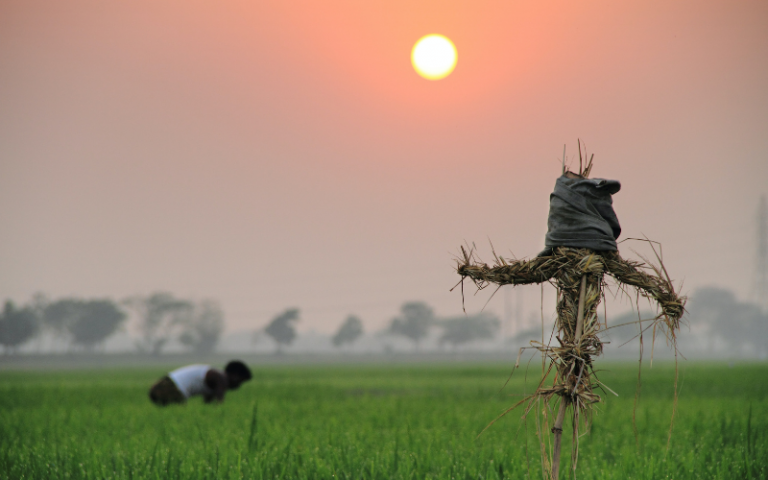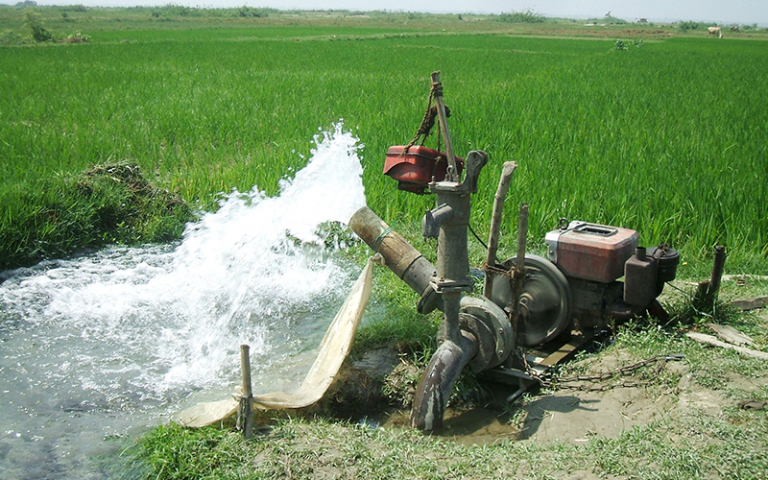Bengal Water Machine rivals world’s largest dams
14 October 2022
Collective groundwater pumping by millions of farmers in Bangladesh has created vast natural reservoirs underground that rival the world’s largest dams, sustaining irrigation that has transformed this previously famine-prone country to a food-secure nation, finds a new UCL study.

Published in Science, the study explores the combined impact of 16 million smallholder farmers pumping shallow groundwater during the dry season to irrigate rice paddies in the Bengal Basin of Bangladesh between 1988 and 2018.
The study revealed that by lowering groundwater levels through dry season pumping, leakage from rivers, lakes and ponds replenishing groundwater was spurred during the subsequent monsoon. This capture of surface water not only allowed groundwater levels to recover but, in doing so, helped to reduce flooding.
Through this process, which the authors describe as “The Bengal Water Machine”, more than 75 cubic kilometres of freshwater was “captured” over 30-years – a volume equivalent to the combined reservoir capacities of China’s Three Gorges Dam and the Hoover Dam in the US.

They highlight this intervention as a sustainable alternative to conventional approaches to seasonal river flow storage for irrigation, including dams and reservoirs, which are challenging to construct in densely populated alluvial plains, like the Bengal Basin, that comprise extensive flat landforms of sand, silt and clay laid down by annual floodwaters.
Co-lead author Dr Mohammad Shamsudduha (UCL Institute for Risk and Disaster Reduction) said: “Despite substantial variations in annual rainfall and an overall decline in basin rainfall, this scalable, decentralised form of freshwater capture has sustained irrigated food production since the 1990s.
“This novel intervention helps to address seasonal imbalances in rainfall by increasing the capture and storage of seasonal freshwater surpluses and mitigating the monsoonal flood risk without the use of dams.”
The study authors argue that this simple intervention has the potential to be replicated across alluvial plains more widely, including other Asian mega-deltas such as the Mekong Delta and Huang He (Yellow) River Delta, which are similarly vulnerable to the impacts of climate change. This Bengal Water Machine could help to enhance global food security and resilience to climate extremes amplified by global warming.
Continue reading on UCL News and watch a Channel 24 mini-documentary about the study (in Bengali).
Links
- Read the full study in Science
- Dr Mohammad Shamsudduha's academic profile
- Professor Richard Taylor's academic profile
- UCL Institute for Risk and Disaster Reduction
- UCL Geography
- UCL Faculty of Mathematical & Physical Science
- UCL Faculty of Social & Historical Sciences
- Professor Kazi Matin Ahmed's academic profile
- Dhaka University
- UCL in South Asia
- Mini-documentary in Bengali
- Dr Shamsudduha's op-ed article in The Daily Star
For the latest news about UCL’s international activity, partnerships and opportunities, subscribe to our bimonthly Global Update newsletter.
 Close
Close

